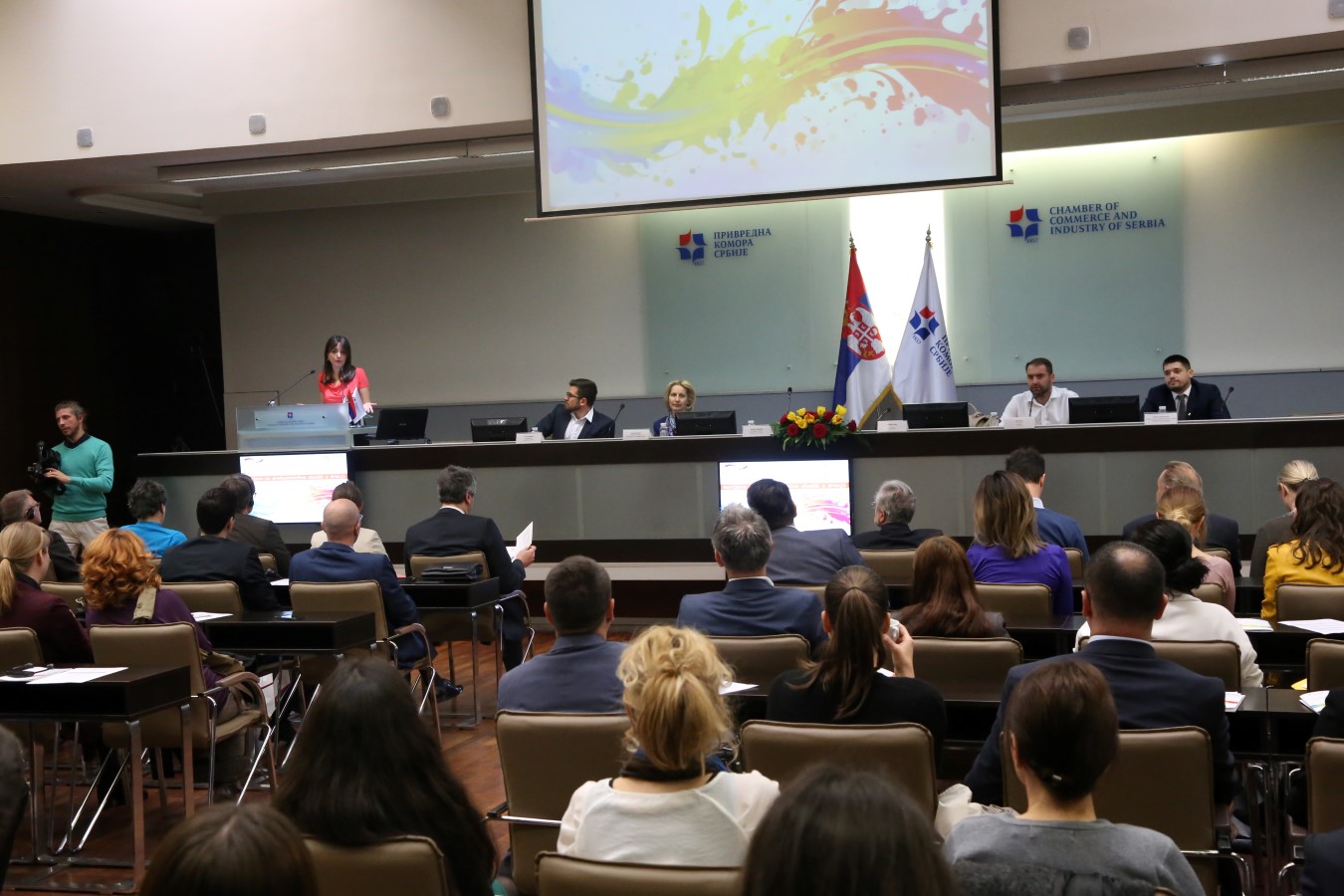April 28th, 2017
Center for Advanced Economic Studies has presented study entitled “Mapping barriers to youth entrepreneurship in Serbia” at a panel discussion organized in the Serbian Chamber of Commerce on April 25th 2017.
The panel was opened by the President of the Serbian Chamber of Commerce Marko Čadež, H. E. German Ambassador to Serbia Axel Dittmann, Minister of Public Administration and Local Self-Government Ana Brnabić and Chairwoman of the Board of the Center for Advanced Economic Studies Kori Udovički.
Marko Čadež pointed out that entrepreneurship is one of the best therapies for unemployment, and that the Chamber of Commerce is continuously working on activities aimed at encouraging and supporting business start-ups. Chamber’s Council for Youth Entrepreneurship also became recognized as the place where the young people can meet and get support for their businesses.
H.E. German Ambassador to Serbia Axel Dittmann said that one of the main goals at the commencement of the German-Serbian cooperation was to work together to create conditions for education and improvement of the legislative framework in order to boost economic growth. The Ambassador also noted that youth unemployment is an important segment that needs to be addressed because young people are the people with the greatest dynamics and have the greatest potential to initiate economic growth.
Ana Brnabić, Minister of Public Administration and Local Self-Government has stated that Serbia in the first, and now in the second phase of the optimization of public administration managed to save more than 100 million EUR only on the salaries of employees. In addition, the Government of the Republic of Serbia through the established IT Ministerial Council is actively working on the introduction of new technologies through formal and non-formal education. IT Council recognized the fact that Serbia has quality as comparative advantage and adopted a realistic action plan for 2017 that is already in the implementation phase.
Kori Udovički, President of the Board of the Center for Advanced Economic Studies said that the main challenges for young entrepreneurs in Serbia are microfinance and online payments. In addition, the legal framework is such that in order to disable certain abuses – we disable all possibilities. In the coming period, according to Mrs. Udovicki we need to encourage and support entrepreneurship of the young people, and to try to reduce the formal requirements that are placed before them.
After the opening statements, CEVES Program Director Danijela Bobić presented the main conclusions of the study ” Mapping barriers to youth entrepreneurship in Serbia ” with the main focus on institutional and legislative problems that young people are facing when starting their business.
After the presentation, panel discussion was started by statement of the Assistant Minister of Economy Katarina Obradović Jovanović who said that the country is continuously working on this issue and that a lot has been done in the past. The country is committed to promoting entrepreneurship as in the previous period through adoption of the strategy, and the celebration of year of the entrepreneurship and the future celebration of a decade of entrepreneurship. Assistant Minister of Youth Snežana Klašnja said that the ministry has a number of initiatives through which they provide support to young people. Through this initiatives, 817 young people were employed, 1500 has gone through practice, while nearly 10,500 young people have passed through some training. According to Mrs. Klašnja that is not enough, but we have to be patient because this development must be built gradually.
Further, the president of the association BEUM, Djordje Djordjevic stated that he has no doubt that there is a will from the top to work on this issue, but what is between the top and young entrepreneurs is functioning poorly. The great problem of our society is the mentality and that the majority of society is seeing entrepreneurship as something negative. However, according to him we are loosing brightness and the idea of young people because county are hindering them here, so they have to establish a company
elsewhere, where it is easier and more accessible. Miša Živić, co-founder LeanPay consider the legal system as a significant problem because in fact the maxim “everything that is not forbidden is allowed” in Serbia is not true, and viewing solely on examples from the European Union, which does not preclude the necessity to pay attention to examples from America or Asia.
At the end of the panel discussion Vladimir Radovanović, an associate in the sector of small and medium-sized enterprises Chamber of Commerce of Serbia, come forward with a message that the young people are driver of the society, and therefore the economy, and especially on the local level we need to feel the potential of young people and direct them in the right direction.


 SR
SR